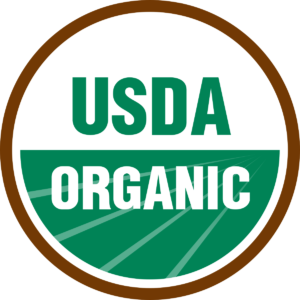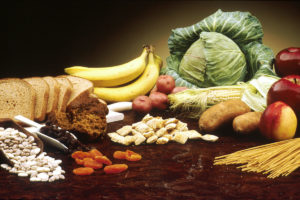 Several studies have found that when children eat organic foods, especially fruits and vegetables, the amount of pesticides in their bodies declines significantly. Most organophosphorus pesticides have been phased out for residential use, but they are still widely used in agriculture, and so these pesticides are detected in both foods and people.
Several studies have found that when children eat organic foods, especially fruits and vegetables, the amount of pesticides in their bodies declines significantly. Most organophosphorus pesticides have been phased out for residential use, but they are still widely used in agriculture, and so these pesticides are detected in both foods and people.
This latest study looked at 20 children living in urban Oakland, Calif., and 20 in the agricultural community of Salinas, about 100 miles south. The children (between 3 - 6 years of age) ate a conventional diet for four days and an organic diet for seven days and then returned to conventional foods for five days. Their urine was collected daily and analyzed for pesticides, specifically by looking at pesticide metabolites (pesticide breakdown products).
Several classes of pesticides were frequently detected, for they were found in more than 72 percent of their urine samples, and 2,4-D was detected in 90% of samples. Of the six most frequently detected pesticides, two decreased by nearly 50 percent when children were on the organic diet, and levels of the common herbicide 2,4-D fell by 25 percent. Amounts of some pesticides were not significantly lower on the organic diet, but these were pesticides associated with use around homes for pest control, and not on foods (e.g., pyrethroids, diazinon, malathion).
Bottom line: eat as many organic foods as possible to lower pesticide levels in the body. To further reduce pesticide levels in the body - avoid pesticide use around the home and garden. Instead, use least toxic IPM (Integrated Pest Management) or organic pest control and organic gardening.
From Medical Xpress: Organic produce means reduced pesticides in kids, study shows
New research out of the Center for Environmental Research and Children's Health at UC Berkeley shows that switching from conventional to organic fruits and vegetables, even for just a few days, significantly reduces pesticide levels in children's bodies.
Twenty children in Oakland, California and 20 in Salinas, California, all 3 to 6 years old, had their urine tested for 16 days during the study. For the first four, they ate conventional produce, for the next seven their diet was organic, and then conventional for the last five. The levels of several pesticides that showed up in daily testing dropped by one-quarter to one-half during the organic stretch.
Excerpts from the original study from Environmental Health Perspectives: Effect of Organic Diet Intervention on Pesticide Exposures in Young Children Living in Low-Income Urban and Agricultural Communities
Recent organic diet intervention studies suggest that diet is a significant source of pesticide exposure in young children....We aimed to determine whether consuming an organic diet reduced urinary pesticide metabolite concentrations in 40 Mexican-American children, 3–6 years of age, living in California urban and agricultural communities. In 2006, we collected urine samples over 16 consecutive days from children who consumed conventionally grown food for 4 days, organic food for 7 days, and then conventionally grown food for 5 days. We measured 23 metabolites, reflecting potential exposure to organophosphorous (OP), pyrethroid, and other pesticides used in homes and agriculture.
For six metabolites with detection frequencies > 50%, adjusted geometric mean concentrations during the organic phase were generally lower for all children, and were significant for total dialkylphosphates (DAPs) and dimethyl DAPs (DMs; metabolites of OP insecticides) and 2,4-D (2,4-dichlorophenoxyacetic acid, a herbicide), with reductions of 40%, 49%, and 25%, respectively (p < 0.01). Chemical-specific metabolite concentrations for several OP pesticides, pyrethroids, and herbicides were either infrequently detected and/or not significantly affected by diet.
Although most residential uses of many organophosphorus (OP) pesticides, including chlorpyrifos and diazinon, have been phased out since the mid-2000s due to potential health risks to children, they have continued to be used in agriculture [U.S. Environmental Protection Agency (EPA) 2000, 2001]. The use of OP pesticides in agriculture could result in ingestion of residues in food, and recent studies suggest that dietary intake of produce and juices may account for a significant proportion of OP pesticide exposure in young children (Lu et al. 2006b, 2008; Morgan et al. 2005; Smith-Spangler et al. 2012; Wilson et al. 2003). Some of the best evidence supporting these findings includes results from diet intervention studies where significant reductions in excreted urinary pesticide metabolites were observed in young children when they consumed an organic diet (Lu et al. 2006b, 2008)....The lower urinary pesticide metabolite concentrations found in children eating organic diets is consistent with food residue monitoring data that has shown lower pesticide residue levels in organic versus conventionally grown food [Baker et al. 2002; U.S. Department of Agriculture (USDA) 2008].
Other factors associated with children’s cumulative pesticide exposures include socioeconomic status and location of residence. For example, low-income children may experience higher exposures to pesticides, particularly pyrethroids, because of poor housing quality and associated pest infestations and home pesticide use (Bradman et al. 2005a; Quirós-Alcalá et al. 2011; Whyatt et al. 2002). Children living in agricultural areas, compared with children living in non-agricultural suburban areas, are exposed to higher ambient and residential contamination from drift or volatilization from nearby agricultural applications and take-home residue by farmworking parents (Bradman et al. 2011; Harnly et al. 2009;Lu et al. 2000; Quirós-Alcalá et al. 2011).
Our finding that an organic diet was not associated with a significant reduction in pyrethroid metabolite (3-PBA) excretion for all children is not surprising given that these pesticides are primarily used in and around homes and not commonly applied to food crops; the finding is also consistent with Lu et al. (2006a), who reported that residential use is a more significant pyrethroid exposure factor for children than a conventional diet.
Several studies indicate that dietary intake is a potential route of exposure for herbicides.....Overall, these studies indicate that 2,4-D may be present in food and support our finding that the lower levels observed in our population during the organic diet phase were attributable to lower dietary exposure.
In summary, consistent with other studies, urinary 2,4-D and two measures of OP pesticide exposure (total DMs and total DAP metabolites) were lower in children eating an organic diet. Other frequently detected metabolites for pyrethroids, diethyl OP pesticides, and the herbicide metolachlor were not significantly lower during the organic diet phase. Further, several compound-specific herbicide and OP pesticide metabolites had low detection frequencies, indicating that diet was not an important exposure source for these pesticides (e.g., diazinon, malathion) in this population. Last, independent of diet, most frequently detected metabolites were generally higher in Salinas compared with Oakland children, with DMs and metolachlor at or near significance (p = 0.06 and 0.03, respectively), suggesting additional sources of pesticide exposure for children living in agricultural communities.
 Many people wonder if the organic food that they buy really is organic. Well... when they buy imported organic foods from outside the United States - they may not be getting organic foods. Fraud occurs due to a major loophole in the current organic standards, a loophole that certain big companies and organizations want to keep.
Many people wonder if the organic food that they buy really is organic. Well... when they buy imported organic foods from outside the United States - they may not be getting organic foods. Fraud occurs due to a major loophole in the current organic standards, a loophole that certain big companies and organizations want to keep.
 Many people wonder whether eating organic foods has health benefits. Yes - studies have found some benefits, such as lower pesticide residue levels in the body in
Many people wonder whether eating organic foods has health benefits. Yes - studies have found some benefits, such as lower pesticide residue levels in the body in  A recently
A recently  A
A  Applying fungicide to apple orchard. Credit: Univ. of Kentucky Agriculture Extension
Applying fungicide to apple orchard. Credit: Univ. of Kentucky Agriculture Extension Several studies have found that when children eat organic foods, especially fruits and vegetables, the amount of pesticides in their bodies declines significantly. Most organophosphorus pesticides have been phased out for residential use, but they are still widely used in agriculture, and so these pesticides are detected in both foods and people.
Several studies have found that when children eat organic foods, especially fruits and vegetables, the amount of pesticides in their bodies declines significantly. Most organophosphorus pesticides have been phased out for residential use, but they are still widely used in agriculture, and so these pesticides are detected in both foods and people.